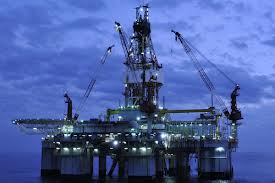
Oil and gas experts claim to have found a solution to tackle dwindling North Sea oil reserves.
Heriot Watt researchers believe low-salinity water injections could add decades to the life of existing reservoirs.
Staff at the Centre for Enhanced Oil Recovery, part of the Institute of Petroleum Engineering, say reducing the amount of salt in the sea water used to extract oil is an affordable way to keep the offshore industry going.
Professor Sohrabi, leading the research, said the technique is relatively inexpensive and can be economically implemented in the North Sea reservoirs.
He said: "This system works by reducing the salt levels in sea water which is already injected in reservoirs. It has the potential to make a huge impact on the current output of the North Sea’s oil production.
“We have developed a robust method to screen oil reservoirs to identify the ones that would respond positively to low salinity water injection. This allows us to estimate the size of incremental oil recovery which is vital for economic calculations of Enhanced Oil Recovery projects.
“This is a massive leap forward, especially in an off-shore setting. The process is relatively inexpensive meaning the costs for EOR could fall dramatically, while yields could rise. It’s also cleaner as you’re removing the need for potentially toxic chemicals.”
For reservoirs that have already been flooded with water, the EOR Centre at Heriot-Watt University has been working for the past 17 years on developing improved gas injection technologies. In water flooded reservoirs, gas injection will recover the trapped oil more rapidly compared to low salinity water injection.
Professor Sohrabi says, “Gas injection is a robust process but it is difficult to simulate its performance accurately as it happens under a complex three-phase flow regime. We have developed an algorithm for accurate prediction of gas and water alternating gas injection performance in oil reservoirs.
“After 40 years of production, the North Sea oil reservoirs are now mature and in rapid decline. Urgent action is needed now. The Government and industry must invest in new gas and water technologies, in order to reverse that decline.”

 Man, 44, seriously injured in hospital after crash between Comrie and Rosyth
Man, 44, seriously injured in hospital after crash between Comrie and Rosyth
 John Swinney announces SNP leadership bid
John Swinney announces SNP leadership bid
 Closures on A92 from TONIGHT for roadworks
Closures on A92 from TONIGHT for roadworks
 14°C
14°C
 12°C
12°C
 16°C
16°C